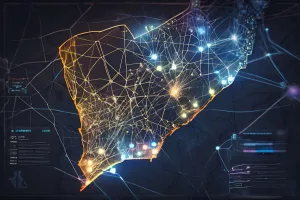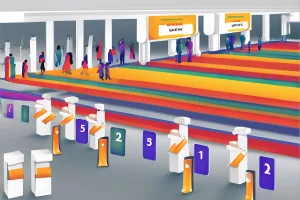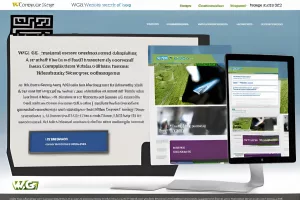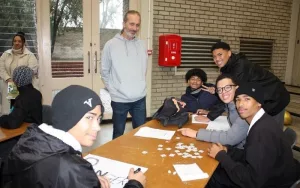SITA, the State Information Technology Agency, is facing big problems with its leadership and management, leading to worries about efficiency and trust. The Portfolio Committee on Communications is stepping in, conducting investigations, and making recommendations to fix these issues and restore accountability. There’s hope for change, as new leaders are being considered to guide SITA back to a strong position in the digital world. This situation highlights the importance of good governance and the need for organizations to adapt and innovate while staying honest and effective.
South Africa is shining bright in the world of egovernment, jumping to 40th place on the United Nations eGovernment Index in 2024, up from 65th in 2022. This impressive rise shows the country’s strong push for digital change, with a focus on making government services better and more transparent for everyone. The National eGovernment Portal is a key part of this progress, offering 134 online services that make it easier for people to access what they need without long waits. With plans to keep improving, South Africa is setting an example for others in Africa and showing how technology can help everyone in society.
South Africa’s banking world is changing fast, moving towards digital and AI solutions. Big banks like FNB and Nedbank are using new technologies to make banking easier and safer for customers. This shift means they need skilled workers who understand tech and data. As these banks embrace these changes, they are becoming more like tech companies, showing that the future of banking is all about innovation and digital skills. Despite some challenges, this transformation is opening up exciting opportunities in the financial landscape.
The Tshwane Refugee Reception Centre in Pretoria is struggling with serious problems, like overcrowding, slow paperwork, and corruption. As many people seek safety in South Africa, the center feels the pressure to help them while dealing with a tricky system. New ideas, like using digital tools to make applications easier, are on the table, but challenges like not having enough staff still make things tough. This center shows how important it is to find a fair and caring way to manage immigration, highlighting the need for change and honesty in the process.
Naturalized citizens in South Africa face tough challenges, like outdated ID systems and complicated bureaucracies, making it hard for them to access essential services. Even though they have the same rights as those born in the country, many struggle to get modern IDs, often feeling like secondclass citizens. Recently, the government, led by Minister Schreiber, has started working on a plan to fix this by introducing smart ID cards and digital services for all citizens. This change not only aims to make life easier but also hopes to create a stronger sense of belonging for naturalized citizens in South Africa’s diverse society.
The City’s customer offices will be temporarily closed from October 5 to 7, 2024, for important system upgrades, but essential services like motor vehicle registration will still be available. This short break is all about making things easier and faster for residents, who can now enjoy online payment options and handy QR codes for quick transactions. Residents can pay their municipal bills at local stores like Shoprite and Pick n Pay, showing how technology is changing city life for the better. Overall, this pause will help the City provide an even smoother experience for everyone in the future!
South Africa’s Home Affairs @ Home initiative is a bold plan to make public services easier by going digital. Led by Minister Dr. Leon Schreiber, this fiveyear project will let people apply for important documents like IDs and passports from their homes, without needing to visit offices. This change aims to save time, reduce crowds, and improve security using advanced technology like biometrics. By partnering with local banks and retailers, the government hopes to ensure that everyone with internet access can enjoy these modern services, making life simpler for all South Africans and visitors.
Home Affairs in South Africa is now open on Saturdays from 8 AM to 1 PM until October 12, 2024, to help students get their IDs for the important National Senior Certificate exams starting on October 21. This means students can get the documents they need without rushing at the last minute. The government is also using technology to make ID applications easier and faster, helping to clear a backlog of requests. This new schedule shows a strong commitment to supporting students and modernizing public services for everyone.
Cape Town has launched a pioneering Data Strategy that puts the city at the forefront of datacentered planning and service provision in Africa. The strategy provides a path to usher in the digital era and ensure unparalleled data transparency for citizens, while protecting personal data through robust systems and governance. The public can expect evidencebased decisionmaking and highquality data sources available for public viewing and analysis. Cape Town’s Data Strategy is already having a positive impact, and the city’s dedication to utilizing data sets a new benchmark for other cities in Africa.
Cape Town has launched a cuttingedge online appointment system for tasks such as motor vehicle license renewals, account payments, and query resolution. The system is userfriendly and has a fivestep process, allowing residents to choose a convenient date and time slot, input their contact details, and receive an SMS and email confirmation of their booking. This innovative system marks a transformative shift in the way residents engage with the city’s public services and is a proactive initiative to refine customer service and offer residents a more timeefficient method of accessing City services.
Minister Leon Schreiber has called for a digital transformation of the Department of Home Affairs in South Africa, citing the importance of national security against identity theft, visa fraud, and corruption. He highlighted the systemic crisis and outdated, paperdriven, manual systems that are vulnerable to manipulation and urged for a stateoftheart digital system to streamline operations and eradicate vulnerabilities. Schreiber proposed a digital platform for instantaneous auditing of the population register, streamlining visa approval, and eliminating queues and system downtime, which could invigorate tourism, draw skilled professionals, stimulate investment, and make Home Affairs more efficient.
The Western Cape Government has won the Public Service Innovation Award at the United Nations Public Service Forum for its CitizenCentric Digital Transformation project. The project aims to improve the living standards of citizens through the use of digital technology and has been successful in creating a citizenfocused digital infrastructure and eliminating the digital divide. The WCG plans to continue to build on its digital infrastructure to further improve public services.
Two teams from Elsies River library have secured their place among the top three winners of the Mandela Day coding tournament, and are now preparing to compete in the national and world tournaments in October and December. The libraries in Cape Town have embraced coding as a step towards digital transformation, sparking a digital revolution that could redefine the role of libraries in the city and beyond. The coding contest has opened a new chapter in the evolution of libraries, making them centres of innovation and digital interaction.
South African National Parks is leading the way in digitalization by introducing an online purchasing system for the My Activity Permit of Table Mountain National Park, making it easier for visitors to engage in specialized activities. The park has also gone cashless at two major entry points, promoting a safer and more efficient mode of handling payments. This innovative step signifies a commitment to sustainable practices and sets a standard for national parks around the world. The fusion of nature and technology at Table Mountain National Park creates a unique and progressive recreational experience, enhancing the park’s appeal for nature enthusiasts and adventurers.
Africa is a continent full of untapped potential, with a spirit of innovation and optimism that was showcased at the Global Entrepreneurship Congress Africa. Deputy President Shipokosa Paulus Mashatile emphasized the importance of cultivating an environment conducive to entrepreneurship, preparing Africa for the digital future, and addressing the issue of ‘braindrain.’ He encapsulated a vision of an innovative and digitally ready Africa that actively shapes its future, with collaboration, effective policies, and support for entrepreneurship being crucial. Overall, the congress stands as a beacon of hope for a brighter future in Africa.
The City of Cape Town has embraced digital transformation to enhance its public services, with a new online reservation system for Motor Vehicle Registration and Licensing offices. The system has significantly reduced waiting times, with over 24,000 users already utilizing the service. The City’s website is designed for mobile compatibility, making the service easily accessible and convenient for residents. This digital evolution is paving the way for how a city can improve its services and enhance the lives of its citizens.
















